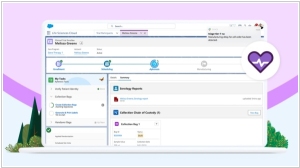MailChimp vs Pardot
November 12, 2023 | Author: Sandeep Sharma
40
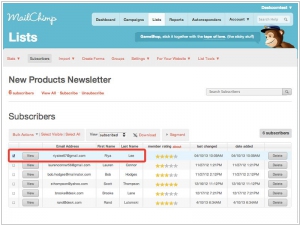
Online email marketing solution to manage contacts, send emails and track results. Offers plug-ins for other programs. Get insight about your subscribers and keep your contacts in one place with subscriber profiles. MailChimp helps you email the right people at the right time. In addition to our built-in segmentation and targeting options, you can automate triggered emails based on your subscribers' website activity.
4
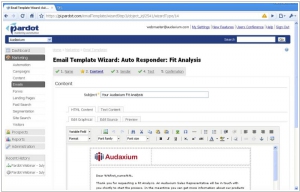
Pardot offers a software-as-a-service marketing automation application that allows marketing and sales departments to create, deploy, and manage online marketing campaigns that increase revenue and maximize efficiency. Pardot features certified CRM integrations with salesforce.com, NetSuite, Microsoft Dynamics CRM, and SugarCRM, empowering marketers with lead nurturing, lead scoring, and ROI reporting to generate and qualify sales leads, shorten sales cycles, and demonstrate marketing accountability.
MailChimp and Pardot are both popular marketing automation platforms, but they differ in terms of their target audience, features, and pricing models.
MailChimp is primarily known for its email marketing capabilities and is widely used by small to mid-sized businesses. It offers a user-friendly interface, drag-and-drop email builder, and robust email marketing automation features. MailChimp allows businesses to create and send personalized email campaigns, segment their audience, and track campaign performance. It also provides integrations with various third-party applications and has a free plan for businesses with smaller marketing needs.
Pardot, on the other hand, is a comprehensive marketing automation platform designed for B2B organizations. It focuses on lead generation, lead nurturing, and lead management. Pardot offers advanced features such as lead scoring, CRM integration (especially with Salesforce CRM), automated drip campaigns, landing page creation, and advanced analytics. It provides in-depth insights into prospect behavior, allowing businesses to track engagement and measure marketing ROI.
See also: Top 10 Marketing software
MailChimp is primarily known for its email marketing capabilities and is widely used by small to mid-sized businesses. It offers a user-friendly interface, drag-and-drop email builder, and robust email marketing automation features. MailChimp allows businesses to create and send personalized email campaigns, segment their audience, and track campaign performance. It also provides integrations with various third-party applications and has a free plan for businesses with smaller marketing needs.
Pardot, on the other hand, is a comprehensive marketing automation platform designed for B2B organizations. It focuses on lead generation, lead nurturing, and lead management. Pardot offers advanced features such as lead scoring, CRM integration (especially with Salesforce CRM), automated drip campaigns, landing page creation, and advanced analytics. It provides in-depth insights into prospect behavior, allowing businesses to track engagement and measure marketing ROI.
See also: Top 10 Marketing software
MailChimp vs Pardot in our news:
2021. Intuit to acquire Mailchimp
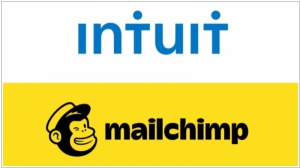
Intuit has made a significant move in the email marketing industry by acquiring Mailchimp for a whopping $12 billion. Although Intuit is not widely recognized in the email marketing space, this strategic purchase aligns with their ambitions to strengthen their position as a hub for small business growth and disrupt the small business midmarket. Intuit's flagship product, QuickBooks, is already a well-known offering among SMBs, and acquiring Mailchimp presents an opportunity to expand their service offerings to their existing customer base. While it may seem like a bold move, Intuit's decision is likely driven by the anticipation of significant corporate synergies that will outweigh the initial investment.
2021. Mailchimp moves into e-commerce
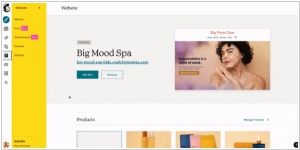
Over the past few years, Mailchimp has evolved from a simple newsletter platform into a comprehensive marketing company. While the platform has already provided integrations with various e-commerce websites, it is now introducing its own online stores tailored to small and medium businesses. Additionally, Mailchimp is launching a new appointment booking service. These new offerings are part of Mailchimp's "Websites & Commerce" plans, which include a free tier providing most of the essential functionalities. Users on the free plan will incur a 2% transaction fee. For $10/month, Mailchimp will remove its branding, provide access to email and chat support, and reduce the transaction fee to 1.5%.
2020. Mailchimp launches new AI marketing tools
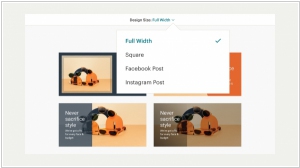
Mailchimp has introduced a suite of AI-powered tools aimed at providing small businesses with the same advanced capabilities utilized by their larger counterparts. These tools encompass personalized product recommendations for customers and predictive analytics for targeted marketing, enabling businesses to identify potential buyers more effectively. Additionally, Mailchimp has unveiled a new AI-driven tool that assists business owners in creating visually appealing assets, leveraging its acquisition of Sawa. Furthermore, a tool has been introduced to aid in crafting compelling email subject lines, helping businesses enhance their communication strategies.
2019. Mailchimp acquired e-commerce platform LemonStand and broke up with Shopify
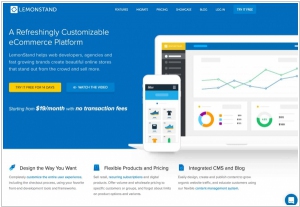
Mailchimp has made the decision to discontinue its app that allowed users to utilize their Shopify data for creating targeted email campaigns. This move came after disagreements arose between the two companies regarding the sharing of customer data. Interestingly, prior to parting ways with Shopify, Mailchimp quietly acquired LemonStand, a smaller competitor of the e-commerce platform. This acquisition was aimed at enhancing Mailchimp's platform by incorporating more integrated e-commerce features. It serves as an indication of the growing importance of Mailchimp's e-commerce business. In the past year, Mailchimp collaborated with Square to introduce shoppable landing pages, showcasing the company's dedication to developing native e-commerce functionalities. While Mailchimp continues to expand its platform's e-commerce capabilities, it remains open to collaborating with third-party providers (excluding Shopify, the largest among them) to offer additional functionality to its users.
2018. Mailchimp partnered with Square to launch shoppable landing pages
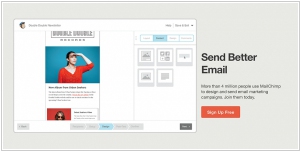
Email newsletter service Mailchimp has announced a collaboration with Square, enabling its users to create landing pages integrated with e-commerce functionalities. These shoppable landing pages serve as an additional sales channel for businesses, facilitating the selling of limited-edition products and targeted promotions. While Mailchimp's landing pages have been available for some time, their primary purpose was to capture email addresses or direct users to a store. With this partnership, customers can now establish complete shopping experiences with built-in payment options directly on these pages. To simplify the process, Mailchimp provides a range of pre-designed templates and a user-friendly drag-and-drop builder. Square will apply a flat processing rate for transactions, while Mailchimp offers this service at no additional cost to its users.
2017. Mailchimp’s marketing automation tools are now available for free
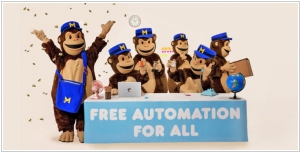
The mailing service MailChimp provides a range of advanced marketing tools to its users, including the ability to follow up with online shoppers. Excitingly, starting today, these advanced marketing automation services are being offered for free to all MailChimp users, even those on the free plan. This means that any online business can now effortlessly create automatic emails that are triggered, for instance, a day after a virtual shopping cart is abandoned or a day after a first purchase is made. Additionally, users can establish a series of welcome emails or utilize the service for transactional messages such as receipts, shipping updates, or invoices. This expansion of free services from MailChimp empowers businesses to enhance their customer communication and engagement without incurring additional costs.
2017. MailChimp combines email marketing with Facebook Ads
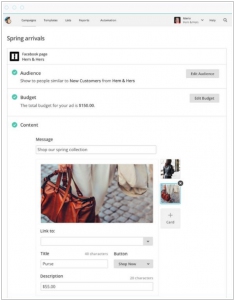
MailChimp has expanded its offerings beyond email marketing by introducing a Facebook advertising integration. This integration enables users of the email marketing platform to create Facebook ads and monitor their performance within the same platform. By leveraging MailChimp's intelligent segmentation capabilities to target recent customers or engaged subscribers, businesses can efficiently generate lookalike audiences on Facebook. The rollout of Facebook Ad Campaigns will occur gradually, with availability for all customers expected by February 2.
2015. Marketing software Pardot improves collaboration and productivity
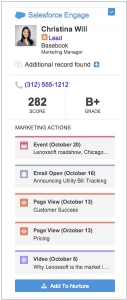
B2B marketing automation software Pardot (owned by Salesforce) has recently introduced a range of beneficial enhancements for productivity and collaboration. These include a Chrome extension that enables email tracking, faster data synchronization, improved data visualization, and enhanced customization options for reporting. The Chrome extension for Gmail is an invaluable marketing automation plug-in that empowers sales representatives to send trackable emails directly from their Gmail accounts. It not only simplifies their tasks, allowing them to sell more effectively, but also serves as a covert B2B tool disguised as a harmless email plug-in. The additional improvements offer similar advantages. Notably, the data synchronization with Salesforce now boasts the fastest speed among all marketing automation tools, as it checks for changes every two minutes. This convenience benefits sales representatives by promptly revealing prospect insights, enabling them to respond swiftly and gain a competitive edge.
2014. Salesforce announced Sales Reach to promote Pardot
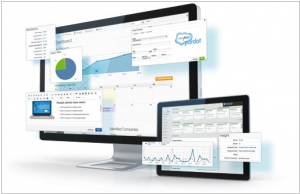
The primary source of revenue for Salesforce comes from subscriptions to the Sales Cloud. However, the company is also focused on expanding its earnings in the marketing solutions sector. To this end, Salesforce made a significant investment of up to $2.5 billion last summer to acquire ExactTarget/Pardot, a marketing-automation and campaign-management software. Yesterday, Salesforce announced a new feature for its Sales Cloud called Sales Reach. This optional feature brings the fundamental capabilities of Salesforce.com's marketing-oriented Pardot offering to salespeople. Sales Reach empowers salespeople to create micro campaigns, track responses to those campaigns, and receive real-time notifications when prospects engage with campaign content, such as downloading materials, attending events, or viewing videos. Additionally, salespeople can invite prospects to join communities, and they can perform all of these actions through their Salesforce1 mobile apps. Sales Reach is set to be available in the first half of 2015.


